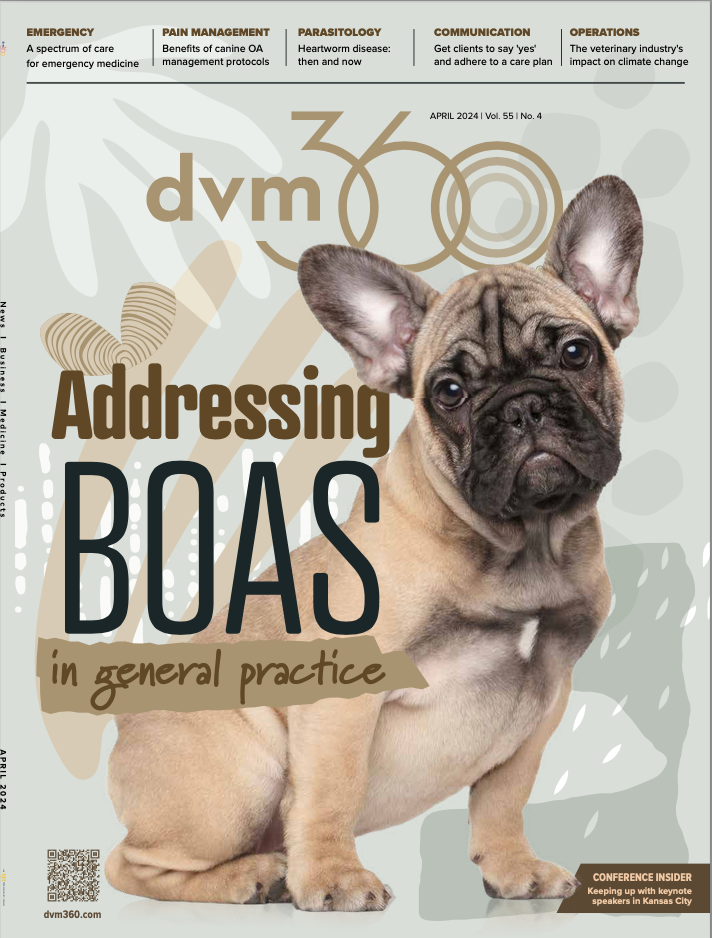Stay competitive—and ethical
General practitioners are building strong relationships with specialists outside the clinic
Editor’s note: All names and businesses in this dilemma case are fictitious, but the scenario is based on real occurrences.
JackF / stock.adobe.com

The scope and protocol of clinical veterinary practice have slowly been changing over the past 10 years. The general practice clinician is taking advantage of the increasing numbers and proximity of referral specialists. Cape Clinic was a 5-veterinarian companion pet–care facility located in busy suburbia. This gold-standard clinic had a caring clientele with the means to provide whatever was necessary for their beloved pets. During his 32 years in the profession, the hospital director has seen many medical changes and breakthroughs. He remembered when the only local independent practicing specialists were an orthopedist and an ophthalmologist. When other specialty care was required, a referral to a university facility was made. For clients, this often resulted in a long drive and an even longer wait for an appointment.
Fast-forward to 2024, and there are specialists at every turn. There are mobile veterinarians, cardiologists, orthopedists, and ophthalmologists. There is easy access to internet-based boarded radiologists and ultrasound specialists. Brick-and-mortar emergency and specialty care service practices also are increasing.1 Not only are they opening in large numbers, but they also are in locations not far from one another. This leads to these various specialty centers becoming very competitive.2 Local referring veterinarians now have several choices for their clients, but they also have to deal with the solicitation from these facilities for their referrals.
This is where things can get ethically touchy. Many of the specialty centers will offer lunch-and-learn sessions at clinics to familiarize staff with their services. Many will extend courtesy specialty care to the professional staff of referring clinics. On occasion, nonmonetary incentives will be offered for referring clients. When a primary care veterinarian feels that a client must see a veterinary specialist, there is a professional, ethical way to approach this. The client should be advised in detail why a referral to a specialist is recommended. Several referral options should be offered with an explanation of why the primary care doctor has selected these options. At no time should the referral be influenced by any incentives previously offered by the referral centers. This is not to say that the referring doctor cannot have preferred specialists. However, these preferences should be based only on medical competence, client feedback, and referral communication experience.
The veterinarians at Cape Clinic established a rapport with several specialists and gained respect for their skills. They did not hesitate to give pet owners their opinion of those specialists. They also mentioned that other options were available. The referring veterinarians understood that their obligation was to their clients and were not swayed by the incentives offered by some referral facilities. In today’s highly competitive veterinary atmosphere, there are many tempting financial opportunities. They should all be considered while keeping in mind ethical and professional standards. This is the way veterinary medicine will remain one of the most respected occupations in the US.
Rosenberg's response
Veterinary medical expertise has improved with the increased availability of referral and specialty services. This greatly helps veterinary professionals, but more importantly, our clients. The increased competition within the referral world has been a tremendous benefit for the primary care clinician. There are often tempting incentives. Nevertheless, maintaining an ethical and professional approach when referring patients helps the pets, owners, clinicians, and our profession.
Marc Rosenberg, VMD, is founder of Voorhees Veterinary Center in Voorhees, New Jersey. Although many of the scenarios Rosenberg describes in his column are based on real-life events, the veterinary practices, doctors, and employees described are fictional.
References
- Raphael M. Four key trends for animal hospitals in 2021. IndeVets. February 8, 2021. Accessed March 13, 2024. https:// indevets.com/blog/four-key-trends-for-animal-hospitals-in-2021/
- Emergency veterinary services in the US - market size, industry analysis, trends and forecasts (2024-2029). IBISWorld. September, 2023. Accessed March 13, 2024. https://www. ibisworld.com/united-states/market-research-reports/ emergency-veterinary-services-industry/#AboutThisIndustry
